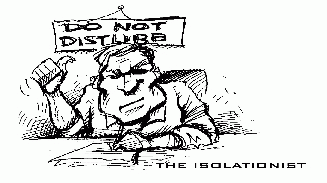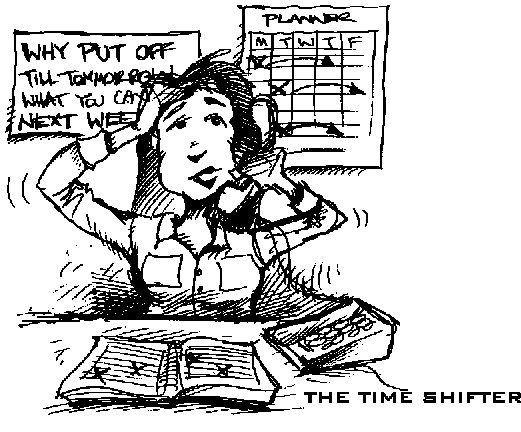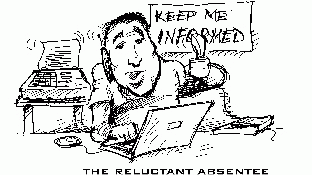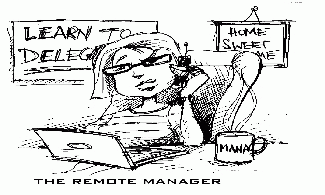There are many business benefits of adopting Agile Working but it will only happen if managers and staff feel they have the competence and confidence to adopt this new way working. So what skills do you need to be an Agile Worker?
Let’s start with attitudinal skills. You need a willingness to take responsibility for what you do. The trade-off for gaining more autonomy in how you work is accepting greater responsibility in meeting work commitments. You will also need a willingness to change how you work and also be willing and able to suggest how you could do things differently to achieve a better outcome be a ‘self-starter’ in cv speak. It is the outcomes on which you will be judged rather than the time you spend doing a task. You will have to accept you will not be praised just for putting in long hours or working hard.
In many roles you need to be able to work collaboratively with colleagues with some give-and-take to assist them to meet their targets as well as your own. Technology is an essential enabler of many Agile Working processes so you will need to be comfortable and effective in various electronic devices including smart phones. As well as being competent in using modern office software applications you may need to use collaborative tools such as Trello for project management.
You will need to be a good time manager in what is a far less structured environment than traditional office-based working. Communication skills are also critical so your colleagues and manager are clear on what you are aiming to achieve.
A supportive boss is always helpful and it is especially important to gain the trust of your manager in an Agile Working environment. You should aim to demonstrate commitment and motivation and build up a good track record in performing well as an Agile Worker. Trust is equally important in the working relationships with colleagues.
Skills required for Managing an Agile Working team
What are the management skills for Agile Working? If you are a manager of Agile Workers you will need to have all the skills for Agile Working and also adopt a management skill that is appropriate for Agile Working. McGregor categorised managers as Theory X or Theory Y.
A Theory X manager believes that people inherently dislike work and prefer to be directed and consequently must be coerced or controlled. These managers can feel they are losing control if employees are not under their watchful eye. Such views are often found in newly appointed first line managers. This attitude is clearly antithetic to Agile Working.
A Theory Y manager believes that people view work as being as natural as play and rest, and learn to accept and seek responsibility. A light-touch management style is required, as staff will exercise self-direction and control. These managers give individuals responsibility and trust them to get on with the job. Theory Y managers have a much greater chance of successfully managing Agile Workers.
As a manager, you are responsible for meeting business goals and getting results. The organisation of resources is your direct responsibility and control remains with you. With Agile Working performance should be based on objective measures of output, and managers need to allow flexibility in how these outputs are achieved. You will need to be competent in performance management and target setting. You should be able to evaluate success through what has been achieved and, crucially, who has contributed to the achievements.
While communication, a core management skill, is always essential, it becomes absolutely indispensable in a less structured environment when managers and staff are in different locations and personal ‘time zones’. You will need to have strong communication skills so that the goals you set are clearly expressed to your team and individual members of the team understand your expectations and objectives. You will need to become adept in the effective use of video-conferencing or teleconferencing technologies while still making the best use of the reduced time available for regular face-to-face meetings. You should lead by example in using IT systems to communicate and keep your electronic calendars up to date so everyone knows when you are contactable.
Specific interpersonal skills that you will need for Agile Working include listening, influencing and negotiation skills to obtain changes in staff behaviours. Coaching skills to personally develop staff into alternative ways of working. Emotional intelligence i.e. awareness of the impact of your own behaviour on others is an important attribute to develop as a manager of Agile Workers
Managing different working styles
Another ability you will need is the ability to manage a diversity of working styles. Here are some of the workstyles you may encounter.


The time shifter can also be a challenge. They choose to work at hours that suit their personal circumstances, such as caring responsibilities, and consequently are rarely available at core times. The opportunities for audio conversations are therefore restricted so good electronic communications and use of collaborative skills are essential for both management and staff.

Change is often resisted and not all staff will be comfortable away from a traditional office routine where they have enjoyed the company and support of their colleagues. For these staff a manager will need to employ counselling and negotiation skills to coax these staff into an Agile Working environment.


